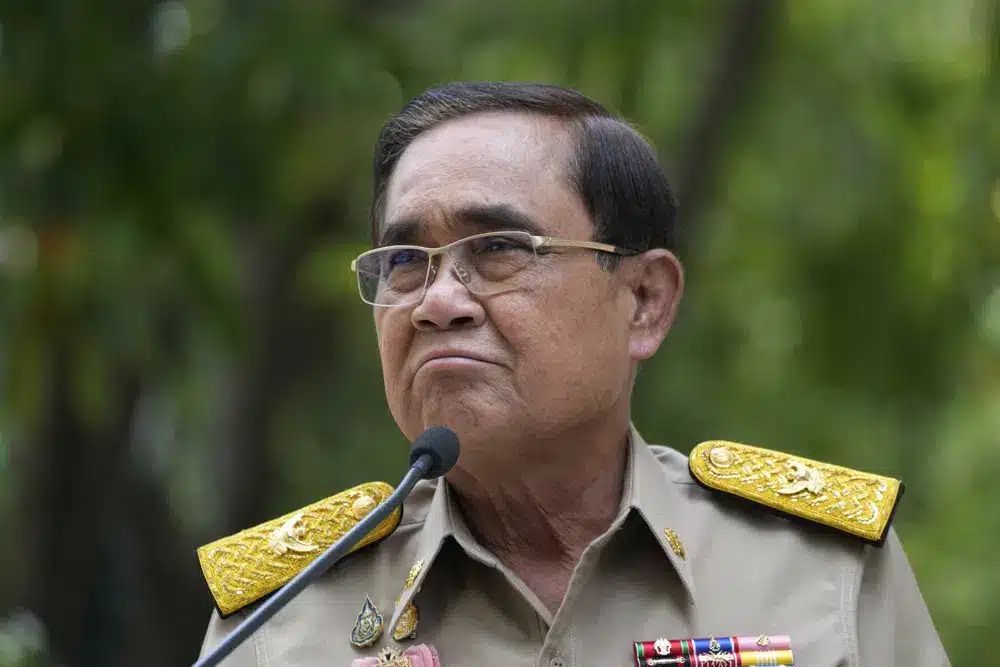BANGKOK — A government decree on Monday resulted in the dissolution of Thailand’s Parliament, paving the way for a general election in May that offers the chance to reduce the political sway of the military.
Prime Minister Prayuth Chan-ocha called for the dissolution just days before the House of Representatives four-year tenure ended. Chan-ocha is running for re-election in the election that is anticipated to take place on May 7 or 14. The time will be revealed the following week.
In the election, groups supporting the conservative establishment and those with strong ties to the military will square off against the well-liked opposition Pheu Thai party, which billionaire populist Thaksin Shinawatra backs.
Most seats have been won by parties backed and headed by Thaksin in every election since 2001; they have been suppressed by military coups, negative decisions by the conservative judiciary, and election laws biased toward the army.
Thaksin’s daughter Paetongtarn Shinawatra, 36, is the front-runner in the Pheu Thai race and is rated well in public opinion surveys.
Paetongtarn Shinawatra, 36, is the front-runner in the Pheu Thai race
She would become the fourth member of the Shinawatra family to hold the position of prime minister in the previous 20 years if elected. Her father and Thaksin’s sister Yingluck Shinawatra served as prime minister between 2011 and 2014. Coups led to the overthrow of both of them. Somchai Wongsawat, Thaksin’s brother-in-law, held the position briefly in 2008 until being ousted due to a court order dissolving Thaksin’s political party at the time, the People’s Power Party.
Of the nation’s nearly 66 million residents, more than 52 million are eligible to vote in 400 seats. First-past-the-post contests will decide the winners of 400 seats in each constituency. The other 100 members of the House of Representatives will be chosen from national party lists using a separate party preference ballot. The 250-seat Senate, a conservative chamber with appointed members, and the freshly elected lower house meet to vote on the prime minister.
Yingluck’s elected administration was overthrown in 2014 by a military coup led by army commander Prayuth, who will turn 69 on Tuesday. Though he chose not to participate in the 2019 elections, the Palang Pracharath party, supported by the army, formed a coalition government, and the parliament chose him to be prime minister.
Prayuth joined the newly established United Thai Nation party in January
His longstanding ally and deputy prime minister, 77-year-old Prawit Wongsuwan, who has been appointed the new Palang Pracharath candidate for prime minister, will challenge him this year.
Even though a court determined that he could only serve two more years in office under the constitution, Prayuth joined the newly established United Thai Nation party in January to run for its nomination. Due to the party’s inexperience, it is still being determined if it can secure 25 seats in the lower house to designate Prayuth as prime minister.
Prayuth and Prawit have received dismal ratings.
Before a few years ago, it was nearly unimaginable for a politician with military ties to say he would be open to creating a coalition government with Pheu Thai.
The stronger runners-up in the 2019 elections will also play a significant role in any coalition administration. The largest number of seats in the lower house are held by the well-funded Bhumjaithai party, which has its roots in the populous northeast.
Anutin Charnvirakul, the leader of the Bhumjaithai Party and a former businessman in the construction industry before entering politics, is Prayuth’s government’s deputy prime minister and health minister, giving him a prominent position during the coronavirus outbreak.
The de facto legalization of marijuana and other cannabis products, a policy that favors the predominantly agrarian northeast, is what he and his party are most famous for.
SOURCE – (AP)












